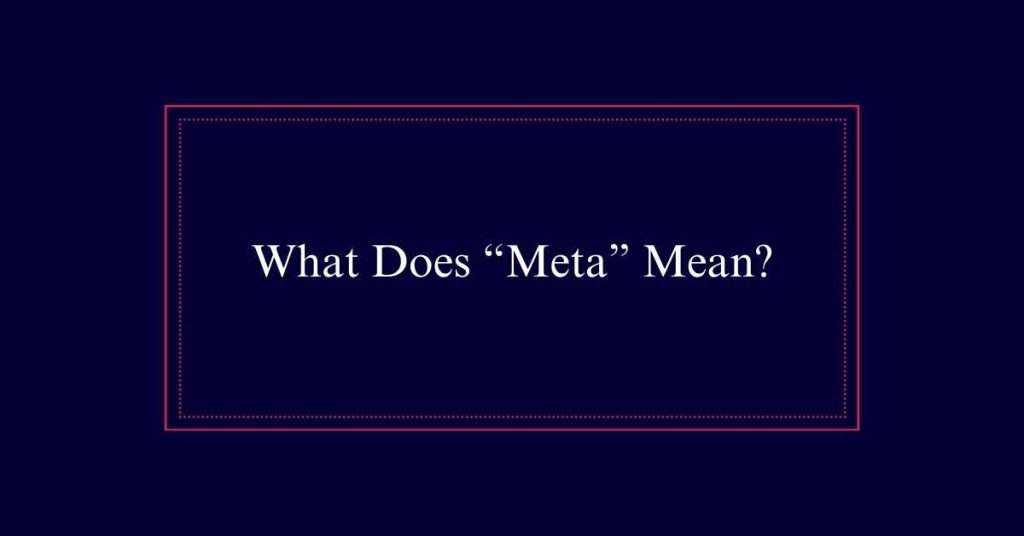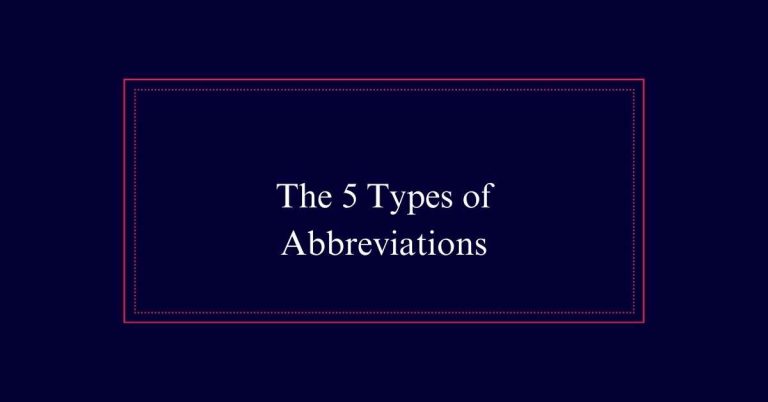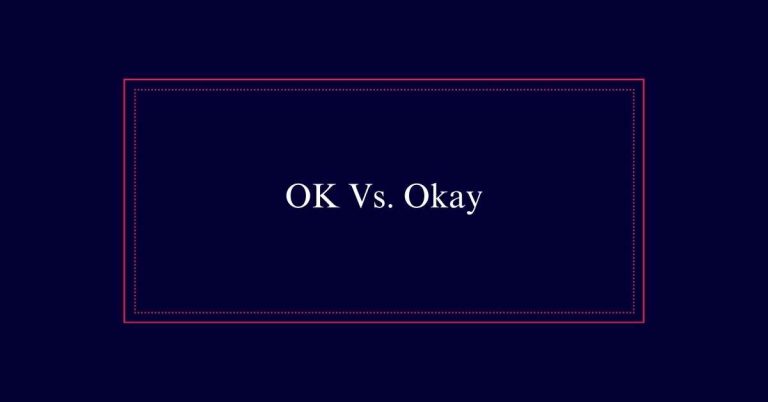What Does “Meta” Mean?
‘Meta’ describes a self-referential concept where something refers to itself. Commonly, it indicates elements that are self-aware or reflective, such as metadata (data about data) and metacognition (thinking about thinking).
It is widely used in art and media to explain creative works that reference their own structure or creation process, like a film where characters discuss the plot of a film. In gaming, it often refers to the most effective strategies.
Understanding Met
To grasp the concept of ‘meta,’ it is crucial to recognize its use as a term for self-referencing or self-reflective phenomena. Fundamentally, ‘meta’ indicates something about itself.
For example, metadata is data about data, and metacognition is thinking about thinking. The formula meta-X equals X about X captures this idea well.
Beyond technical terms, ‘meta’ is also common in creative contexts. In art, a movie where characters make a film within the film is considered meta. The term can be used as an adjective to describe anything self-referential.
Meta Explained
Meta, in its essence, signifies a self-referential or self-aware concept. This means that something meta is about itself. For example, metadata is data about data, and metacognition is thinking about thinking. Meta can be used as an adjective to describe anything self-referential.
In art, meta often involves works that reference their own creation. Movies where characters make movies or books featuring authors writing books are meta. An example is the film Birdman, which is highly self-referential.
In gaming, meta stands for the most effective tactics available, meaning strategies that are currently dominating.
Meta in Everyday Language
In everyday language, the term ‘meta’ is often used to describe situations where an element is self-referential or reflective of its own nature.
For example, a ‘meta-joke’ is a joke about jokes. It draws humor from the structure or concept of joking itself.
Similarly, ‘metacognition’ involves thinking about one’s own thinking processes. This self-referential aspect can also be seen in ‘metadata,’ which is data about data, like information describing the content and format of a file.
The term ‘meta’ can stand alone as an adjective, signaling that something is self-aware or self-referencing. This usage has permeated various contexts, making ‘meta’ a versatile and widely understood term in everyday conversation.
Meta in Art
Exploring meta in art reveals a fascinating layer where the work refers to itself or the process of its creation. This self-referential quality can be seen in various forms, such as paintings, literature, and film.
For instance, a novel where characters write or read a book within the story is considered meta. The movie ‘Birdman’ is a prime example, with characters deeply involved in creating a play, which mirrors the film’s themes.
Meta in art often challenges traditional boundaries, inviting the audience to engage with the work on a deeper level. It emphasizes the art’s fictionality, making viewers aware of the creative process and the constructed nature of the work itself.

Meta in Media
Media today often incorporates meta elements, creating content that reflects on its own nature and the medium itself. This self-awareness allows creators to engage audiences in a deeper dialogue about the content they consume.
For example, television shows like ‘Community’ or ‘The Simpsons’ frequently employ meta-humor, acknowledging their status as TV shows. This method can add layers of meaning and offer a fresh perspective on traditional storytelling.
In film, directors sometimes break the fourth wall, directly addressing the audience to highlight the artificiality of the medium. Such techniques can enrich the viewer’s experience by blending entertainment with critical reflection.
Meta-referencing
Meta-referencing occurs when characters within a story acknowledge their existence in a fictional work. This technique is often used in metafiction, where the narrative breaks the fourth wall. Characters might speak directly to the audience or comment on the story’s construction. This approach can add layers of meaning and engage the audience in a unique way.
For example, in the TV show ‘Fleabag,’ the protagonist frequently addresses the camera, making viewers aware of the show’s artificiality. This self-awareness can create a sense of intimacy and humor. Meta-referencing can also serve to critique or analyze storytelling conventions.
Meta in Gaming
While meta-referencing in fiction engages audiences through self-awareness, the term ‘meta’ in gaming focuses on the most effective tactics available.
In gaming, calling something ‘meta’ means it is a strategy or tactic that is currently the most efficient for winning. Gamers often discuss the meta to optimize their play and stay competitive. The meta can change frequently as game developers release updates or patches.
Additionally, ‘metagame’ refers to the use of knowledge from outside the game to gain an advantage, such as understanding popular strategies or player tendencies. Staying informed about the meta is essential for success in competitive gaming environments.
Meta in Internet Culture
In internet culture, ‘meta’ refers to self-referential content or discussions about discussions. Online, this manifests in various forms such as meta memes, meta comments, and meta discussions.
Meta memes often joke about the nature of memes themselves. Meta comments might discuss the structure of a conversation rather than its content. For example, a user might comment on how a thread is evolving rather than contributing to the topic.
Forums and social media are common platforms where these meta discussions occur. This self-referential approach can add a layer of depth, humor, or critique to online interactions. It highlights the community’s awareness of its own behavior and dynamics, making the internet a space for reflective and iterative dialogue.
Meta Humor
Meta humor often involves jokes that are self-referential, acknowledging their own structure or the nature of humor itself. This form of comedy breaks the fourth wall, drawing attention to the fact that it is a joke.
It can include characters being aware they’re in a joke or commentary on the joke-telling process. Meta humor challenges traditional boundaries by highlighting its own construction. It often appeals to audiences who enjoy layered, intellectual comedy.
It plays with expectations, making the audience think about why something is funny. By doing so, it can provide a deeper level of engagement and enjoyment. Meta humor is prevalent in various media, including television, movies, and literature, offering a clever twist on conventional humor.
Examples of Meta
Beyond meta humor, numerous examples of meta can be found across various media and contexts. In art, literature, gaming, and internet culture, meta often highlights self-referential or self-reflective elements.
- Art: Movies like ‘Birdman’ showcase characters creating art within the film, emphasizing the creative process.
- Literature: Metafiction, such as in ‘Don Quixote,’ features characters aware they are in a story, breaking traditional narrative conventions.
- Gaming: In gaming, ‘meta’ refers to the most efficient tactics available, guiding players towards the most effective strategies.
- Internet Culture: Meta discussions on forums often involve conversations about the nature of the conversations themselves, enhancing self-awareness.






